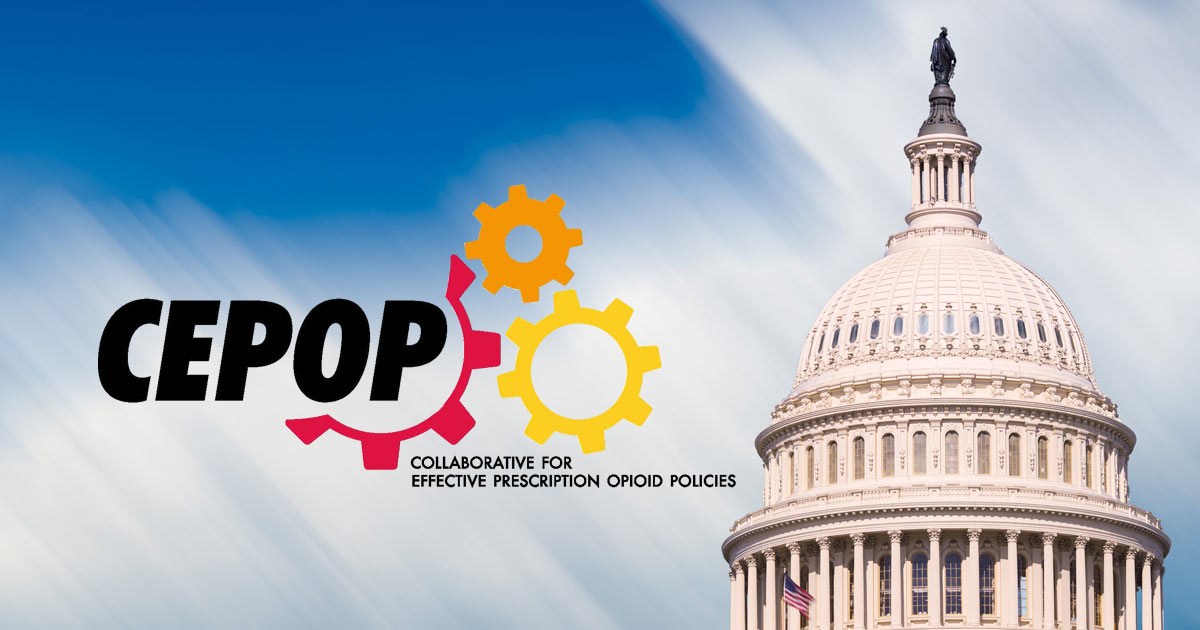Lawmakers Request DOJ Provide Information on Opioids Settlements and Patient Access to MAT Medications, Naloxone
Last week, Representatives Marcy Kaptur (OH-09) and Andy Harris (MD-01) sent a letter to Attorney General Merrick Garland requesting that the Department of Justice (DOJ) provide information on the implications of the opioids settlements on patient access to medication assisted treatment (MAT) medications and naloxone. In their letter, the Representatives noted concerns about drug shortages under the current settlement, which allows one drug manufacturer to provide MAT medications and naloxone to three states – Florida, Rhode Island, and Texas – in lieu of monetary compensation. The lawmakers request that DOJ provide information on the department’s actions to date related to the opioids settlements, the implications of one manufacturer providing drugs on patient access to medications, whether DOJ has the authority to assess the impacts of the opioids settlements on the MAT and naloxone markets, and how DOJ and other agencies would ensure that decisions related to the opioids settlements would not limit patient access to MAT medications and naloxone.
Articles & Resources
HHS Provides $3.15B for State-Level Treatment, Recovery, and Prevention Programs
The Department of Health and Human Services’ (HHS) Substance Abuse and Mental Health Services Administration (SAMHSA) will provide $3.15 billion through its Substance Abuse Prevention and Treatment Block Grant (SABG) program. The SABG program provides funding for grantees in 50 states, the District of Columbia, Puerto Rico, the U.S. Virgin Islands, 6 Pacific jurisdictions, and 1 tribal entity to plan, implement, and evaluate programs that focus on treatment, recovery, and prevention services. Grantees are required to target pregnant women and women with dependent children and intravenous drug users, and spend no less than 20% of the funding on substance abuse primary prevention strategies for the general population and individuals at high risk of substance abuse but not yet needing treatment. Primary prevention strategies identified by SAMHSA as eligible for SABG program funding are information dissemination, education, problem identification and referrals, promoting alternative activities that exclude drugs, community-based and grassroots networking and technical assistance, and establishing or changing community standards.
Articles & Resources
SAMHSA – Substance Abuse Prevention and Treatment Block Grant
Pandemic Oversight – The opioid epidemic got worse during the pandemic. A $3.15 billion program addresses the addiction crisis.
What We Read Last Week
Several articles were published last week pertaining to the opioid epidemic, covering a variety of different components of the topic. Links to relevant articles are provided below.
American Heart Association – Opioid prescriptions after heart device procedures down slightly
BMJ Open – Epidemiological trends in opioid-only and opioid/polysubstance-related death rates among American Indian/Alaska Native populations from 1999 to 2019: a retrospective longitudinal ecological study
Brookings – Ways to address the opioid crisis
CNN – More states allow fentanyl test strips as a tool to prevent overdoses
Governor Brian P. Kemp – Gov. Kemp Signs Major Opioid Legislation to Secure $636 Million for Treatment and Prevention
JAMA Network – Mindfulness-Based Therapy Reduces Chronic Pain and Opioid Misuse
JAMA Network Open – Effect of Mailing an At-home Disposal Kit on Unused Opioid Disposal After Surgery A Randomized Clinical Trial
NBER – Dangerous Prescribing and Healthcare Fragmentation: Evidence from Opioids
NBER – The Opioid Crisis, Health, Healthcare, and Crime: A Review Of Quasi-Experimental Economic Studies
NC State University – Stem Cell-Derived Model Offers Insights on Gene Activity and Addiction
Pew Charitable Trusts – For These Mothers Struggling With Opioid Use Disorder, One Residential Treatment Program Offers a Lifeline
Rand Corporation – Fentanyl Makes an Already Dangerous Drug Market Deadlier Than Ever
STAT – Listen: How should doctors treat chronic pain in the wake of the opioid crisis?
STAT – The FDA’s Rob Califf on importing drugs from Canada, on Aduhelm, and on opioids
The Hill – For harm reduction to work, we need a full defense
The Washington Post – Nerve blocks may help counter the opioid crisis
This Week’s Calendar
- House Homeland Security Subcommittee on Border Security, Facilitation, and Operations
Hearing On “Examining DHS’s Efforts to Combat the Opioid Epidemic”
Thursday, May 12th ; 2:30 a.m.; Hearing Notice
Questions about the above content can be directed to [email protected].

